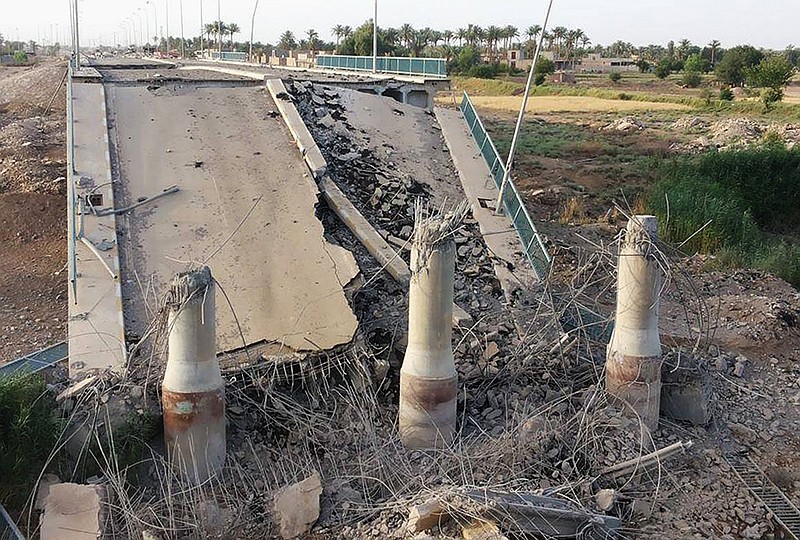If President Obama's words about United States strategy against the Islamic State sounded familiar, they should. He said virtually the same thing last August.
The U.S., he said Monday during the G-7 summit in Germany, lacks "a complete strategy" for training Iraqi forces to fight the terror group. Ten months ago, he said "we don't have a strategy" for defeating the Islamic State.
Now, no one assumed the Islamic State would be taken out in one fell swoop, and it certainly is realistic to expect Iraqis to take the major role in defending their country.
But 10 months is a long time to get your strategy together.
In that time, the Islamic State has made ground gains in both Syria and Iraq, has continued to be supplied with recruits and appears to have an unlimited supply of money.
The U.S. has used zero collateral damage air strikes over both countries, and a State Department official said they have resulted in 10,000 dead. But since American troops are not on the ground, such a claim is hard to verify.
A senior Iraqi Sunni politician said Monday at the United States Institute of Peace that the U.S. should "multiply their efforts" to defeat the Islamic State, implying that ground troops are needed. That, of course, goes against the president's desire, Iraq's previous statements it didn't want U.S. troops to return and the expressed and unexpressed thoughts of most Americans.
However, most Americans also are puzzled how a group that doesn't have the backing of a sovereign country can make such strides, can seem to be so little damaged by repeated air strikes and is not more vehemently opposed by the countries it occupies.
The situation in Iraq is complicated by the tribal division in the country, with Sunnis feeling marginalized by the Shia-led government and by the security of the country now largely dominated by Shia militias and Kurdish Peshmerga forces. Some experts even believe the tribal division will prevent such a war from ever being won.
Since the current U.S. strategy is virtually unchanged from August, and the Islamic State is more and not less dominant in Iraq, a new or improved strategy is needed. If it does not include some manner of power sharing among security forces, some type of autonomy for the various tribes, or some type of border blockade with Syria and Turkey to prevent reinforcements, it may, in fact, become an unwinnable conflict. And if it is, Syria and Iraq won't be the last outposts the Islamic State seizes.
